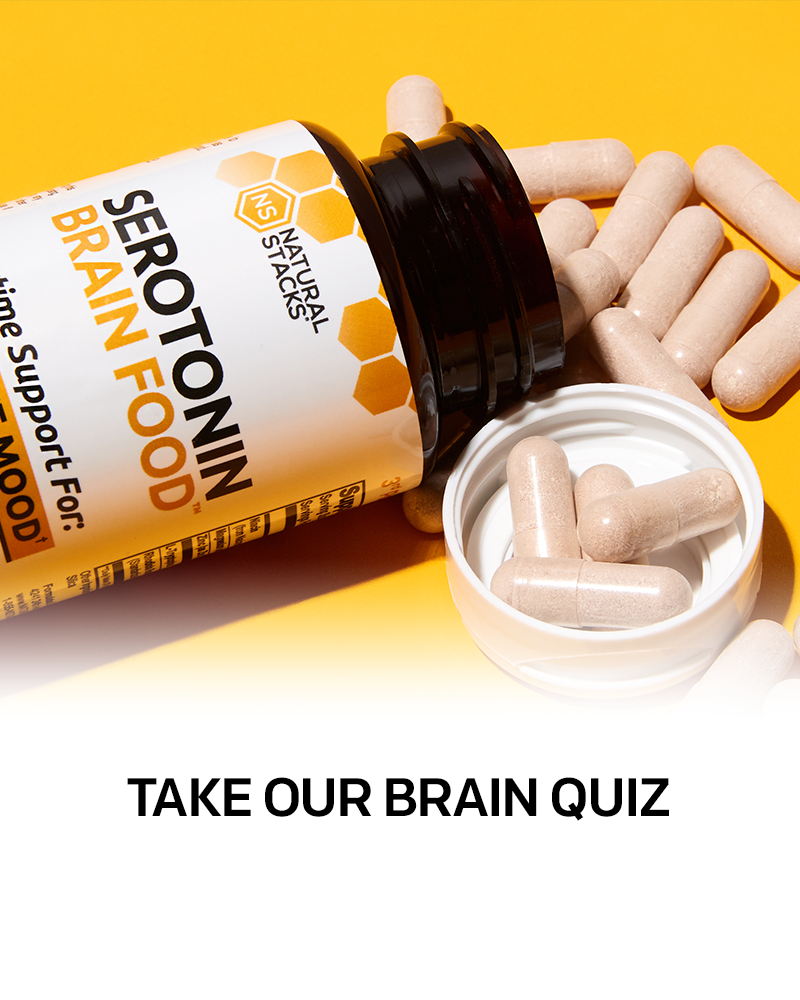-
Vitamin B3 (Niacinamide)

Name
- Vitamin B3 (niacinamide, nicotinamide, niacin)
Good Sources
- Eggs, meat, milk, green vegetables, mushrooms.
How to Take
- Most benefits observed in doses of ~ 1g per day.
Natural Stacks Supplements Containing Vitamin B3 (Niacinamide)
General Properties
Vitamin B3 is an essential vitamin and cofactor for metabolism of fats, carbohydrates, proteins, and alcohol. It’s primary role in the body is to aid in a multitude of ongoing metabolic processes and to generate energy in the form of ATP. Vitamin B3 is a precursor to coenzymes nicotinamide adenine dinucleotide (NAD), and nicotinamide adenine dinucleotide phosphate (NADP), which are involved in cell signaling and DNA repair [1].
Vitamin B3 and Brain Function
Vitamin B3 increases energy output in the brain by increasing the production of ATP. Regarding brain health, the vitamin serves as a cofactor for a multitude of beneficial processes, it increases cerebral circulation and cellular energy, and may have neuroprotective benefits [1].
Niacinamide as a precursor to NAD and NADH repairs brain cells and protects against DNA damage. It also acts as an antioxidant to help reduce oxidative damage from free radicals [2].
Additionally, niacinamide plays a role in healthy neurotransmitter function and synthesis, including dopamine, norepinephrine, and serotonin [3].
Effects On Focus, Memory, and Concentration
One of the main underlying mechanisms of niacinamide is its ability to increase cellular energy and cerebral blood flow [2]. Once converted to NAD, the molecule donates its electrons to the electron transport chain which lend themselves to the production of ATP molecules -- the primary energy currency of the brain [4].
As a substrate for ATP production, niacinamide indirectly plays a role in cognition, focus, concentration, memory, and processing speed. Additionally, adequate levels of niacinamide may play help improve brain health and combat neurodegeneration [4].
Niacinamide has been shown to increase Brain Derived Neurotrophic Factor (BDNF). Higher levels of BDNF are associated with increased intelligence, mood, productivity, and memory [5].
Effects On Longevity
Niacinamide may influence the expression of genes involved in the aging process [3, 2].
Side Effects
No side effects reported in doses up to, and potentially exceeding, 2 grams per day. However, cases of hepatotoxicity and hospitalization have been reported with > 2 grams sustained release niacin taken daily over the course of several weeks.
References:
- Revollo, J. R., Grimm, A. A., & Imai, S. I. (2007). The regulation of nicotinamide adenine dinucleotide biosynthesis by Nampt/PBEF/visfatin in mammals. Current opinion in gastroenterology, 23(2), 164-170.
- Ying, W. (2007). NAD+ and NADH in neuronal death. Journal of Neuroimmune Pharmacology, 2(3), 270-275.
- Swerdlow, R. H. (1998). Is NADH effective in the treatment of Parkinson’s disease?. Drugs & aging, 13(4), 263-268.
- Mills, J. C., Nelson, D., Erecińska, M., & Pittman, R. N. (1995). Metabolic and energetic changes during apoptosis in neural cells. Journal of neurochemistry, 65(4), 1721-1730.
- Cui, X., Chopp, M., Zacharek, A., Roberts, C., Buller, B., Ion, M., & Chen, J. (2010). Niacin treatment of stroke increases synaptic plasticity and axon growth in rats. Stroke, 41(9), 2044-2049.











